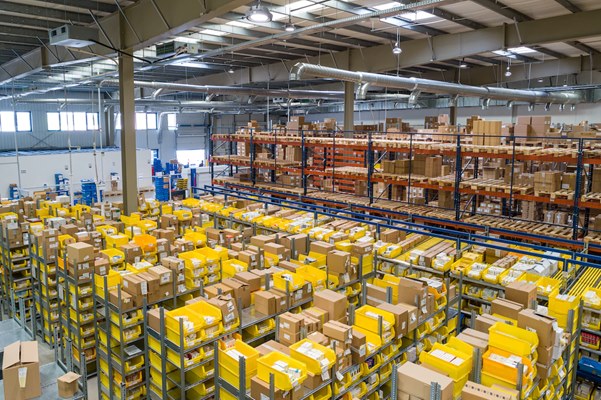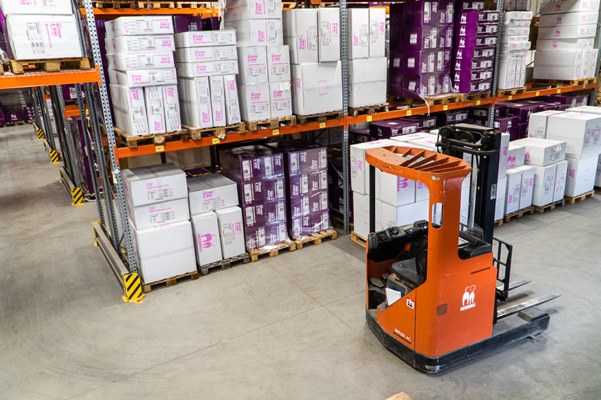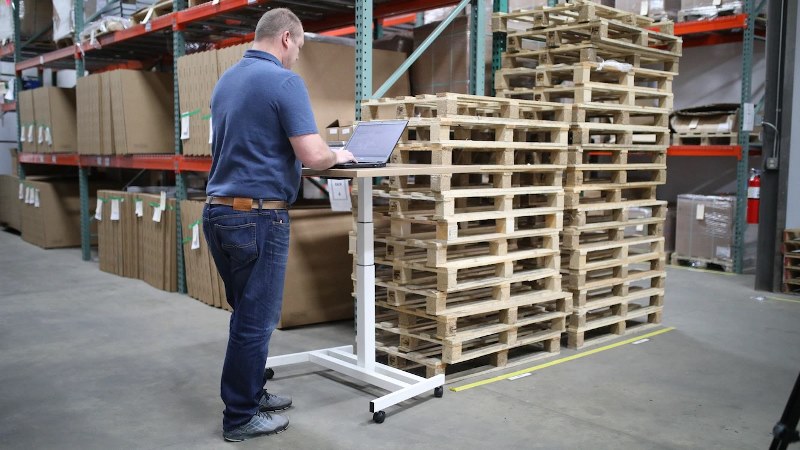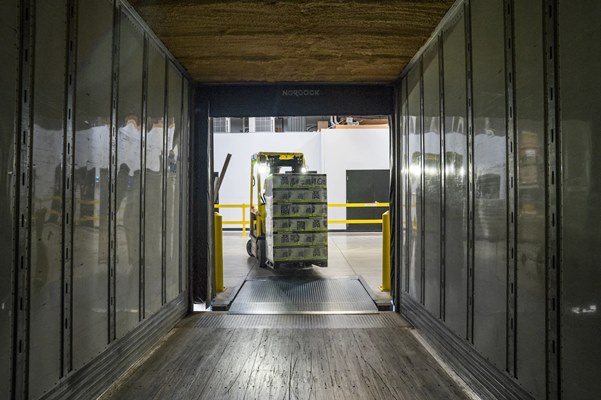Why Warehousing Services Are Beneficial to International Trade?

Global economies are more integrated than ever, with countries and individual businesses trading goods to maintain supply chains. According to a World Bank report on World Integrated Trade Solutions, the US, UK, China, Japan, and Mexico are Canada’s leading trading partners, contributing hundreds of millions of dollars to the economy.
Such an effective goods trade network between countries with massive geographical distances between them is only possible due to international warehouse services. So, what are warehousing services, and what are the benefits of warehousing to international trade? Keep reading to understand why warehousing and logistics services are at the core of international trade.
What Are Warehousing Services?
Before we explore what international warehousing services entail, let’s begin by defining warehousing. Essentially, warehousing entails storing finished physical goods and raw materials at a centralized location and maintaining inventory before transferring the items to storage for sales and distribution.
The concept of warehousing dates back to the creation of granaries to store grains for consumption during dry seasons thousands of years ago. It later evolved to mean storing goods or wares, other than grains, for trade.
Fast-forward to 2023, warehousing services are more critical than ever and have integrated technology to accommodate best courier services. According to one industry report, Canada’s Public Storage And Warehousing industry has a $13.6 billion market share.
Besides technological advancements, service diversification is another factor contributing to the warehousing services industry’s growth. The warehousing and distribution services that freight management solution companies offer include order processing and fulfillment, select-and-pack, returns processing, inventory management, and contract warehousing.
Additionally, warehousing and fulfillment companies may offer shipping services, including transloading (switching goods’ transport modes) and cross-docking (moving goods directly from the supplier to the recipient).
Below is an overview of how warehousing services benefit international trade.

1. Warehousing Services Provide Secure Storage Solutions For International Traders
International trade means ferrying goods and raw materials across large distances to get to the buyer or the final consumer. While the logistics industry has come a long way in streamlining freight services, goods in transit remain at risk of loss to various factors, likely to hamper the supply chain.
For starters, the theft of goods in transit is a significant impediment to seamless international trade. Consequently, world economies tend to avoid trading partners with political instability or a high crime rate that fuels international cargo theft.
Per the Insurance Bureau of Canada economy loses $5 billion to cargo theft annually. Moreover, the report highlighted that the proceeds from cargo theft often go into financing organized crime activities.
While cargo theft is the most significant risk factor for the loss of goods in international trade, the risk of fire and other physical damage also causes losses to global economies. Fortunately, international warehousing services can help international traders avoid such losses while boosting economic growth.
First, warehouses provide a safe facility for international traders to store goods, limiting the number of freight trips to supply goods to a different country while maintaining a steady supply. Fewer trips while ferrying cargo means a reduced risk of cargo theft.
Second, modern warehouses have integrated security features to keep the goods stored within the facility safe from theft and physical damage. Such features include security cameras, motion detectors, inventory tracking systems, secure parameters, security guards, and access monitoring and control systems.

2. Specialized Storage
Some import and export goods like machinery and vehicle parts last without sustaining damage or presenting a health hazard in ambient temperature. However, others require specialized storage to prevent loss or health hazards to individuals handling the cargo.
For example, petroleum gas, one of Canada’s leading exports, required hazardous storage to prevent explosions that could cause significant loss of life and property. Also, highly perishable goods like foods and flowers need cold storage to prevent microbe growth and withering.
Additionally, alcohol imports and exports require wet bonded storage because they are restricted goods. Bonded storages allow importers to pay less excise duty on imported goods.
Specialized warehouses ensure that internationally traded goods make it to the final recipient in pristine conditions, preventing losses. However, how can international traders identify warehouses with specialized storage facilities meeting their needs? A quick search for “warehousing services near me” can provide contact lists that you can use to consult potential warehouse managers for details on their specialized storage options.
3. Reduced Delays
Delays in fulfilling orders cause significant inconveniences for a buyer and potential loss of business for the seller in the international supply chain. Such delays can create artificial goods shortages that harm entire economies.
Additionally, advancements in local and international logistics solutions mean companies are working harder than ever to get purchased products to the buyer within the shortest time possible. The result is that consumers are getting more used to conveniences like delivery speeds and will penalize your business for delays by posting negative reviews or abandoning your brand altogether.
As an importer or exporter, dealing with irate customers demanding compensation and refunds for delivery delays is stressful. However, you can avoid such unfortunate delays instanced by using warehouses. Warehouses function as a buffer, ensuring a steady supply of international goods and allowing international traders to meet product demands.

4. Warehousing Services Help Streamline the International Supply Chain
As stated earlier, the core business for warehousing and distribution services companies is providing storage space for goods and raw materials awaiting sales or distribution. However, warehouses have management systems that allow such companies to offer many more services beyond basic goods storage.
First, warehouse management systems support inventory management functions. The best warehousing inventory management system allows international traders to prevent stock depletion.
Second, the systems support order fulfillment. Therefore, the supply manager can process orders and ship them to the final customer on the trader’s behalf. The systems also support order-tracking functionalities for courier solutions.
Third, warehousing services also include select-and-pack and kitting services. All the ancillary services that warehouse facilities offer help prevent common inconveniences in the supply system and lower business operational costs.
5. Data Warehousing
Warehouse management systems collect and store data from diverse sources for retrieval on demand. They also feature an analytics function to facilitate informed decision-making.
Besides inventory management data, the system generates and stores crucial logistics documents like a house of bill lading and the master of bill lading. Therefore, it helps eliminate human errors that can cause discrepancies and other inconveniences in international trade.
Conclusion
Warehousing services are essential for international trade, working hand-in-hand with logistics to sustain a global supply system. Warehouses serve as crucial nodes in the supply chain, storing, managing, and distributing goods efficiently.
They ensure product availability, minimizing stockouts and fostering trust. Warehousing services contribute to cost-effectiveness by consolidating goods, reducing transportation expenses, and optimizing storage. They provide value-added services such as quality control, packaging, and customization, enhancing competitiveness.
Warehouses also mitigate risks by offering secure facilities, protecting goods from theft or damage, and implementing robust inventory tracking systems. In summary, warehousing services play a vital role in international trade by facilitating smooth operations, ensuring reliable supply, and supporting the growth of the global economy.

